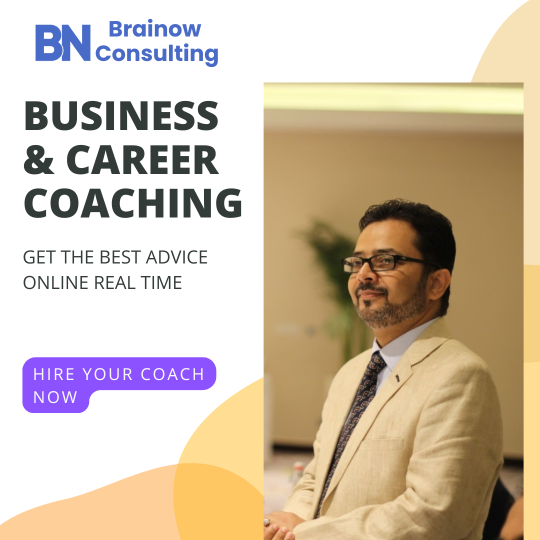Top Learnings from “Out of The Crisis” By W. Edwards Deming

W. Edwards Deming’s Out of the Crisis is a seminal work in the field of quality management and organizational excellence. It outlines a comprehensive approach to improving quality, productivity, and competitiveness through systemic thinking and effective leadership. Here are the top learnings from the book:
1. The 14 Points for Management
Deming’s cornerstone principles for transforming business culture and operations include:
- Create constancy of purpose for improvement.
- Adopt a new philosophy of quality and reject acceptance of poor workmanship.
- Cease dependence on mass inspection; build quality into the process.
- Focus on long-term relationships with suppliers based on quality, not just price.
- Drive out fear so employees feel safe to express ideas and concerns.
- Eliminate barriers to pride in workmanship, such as unclear expectations or poor management.
Online Chat Consultations
TRAINING | BUSINESS MENTORING | LIFE COACHING | PROJECT MENTORING | CONSULTATION
LIVE ONLINE IN PERSON COACHING
Chat / Call / Video Call
HOW DOES OUR ONLINE PAID CONSULTATION WORKS
YOU CAN CHOOSE CHAT / CALL / VIDEO CALL OPTIONS
1. CLICK ON THE LINK “CHECK YOUR BOOKING OPTIONS AND PRICING“.
2. YOU WILL BE REDIRECTD TO SECURE PAYPAL PAGE
3. CHOOSE AN OPTION FROM THE DROP DOWN MENU
4. CHOOSE NUMER OF SESSIONS (1 is selected by default)
5. MAKE SECURE PAYMENT VIA PAYPAL
6. DONE! WE WILL SEND IN YOUR MEETING DETAILS ON YOUR MAIL ID. YOU CAN CHOOSE A SLOT AND MEDIUM OF YOUR CHOICE.
2. Understanding Variation
- Variation is a central theme in Deming’s philosophy. He distinguishes between:
- Common causes: Systemic issues inherent in the process.
- Special causes: Issues caused by external or non-systemic factors.
- Managing variation effectively is crucial for consistent quality and productivity.
3. The System of Profound Knowledge
Deming proposes four interrelated concepts as a framework for leadership:
- Appreciation of a system: Understand the organization as an interconnected system with processes that must work harmoniously.
- Knowledge of variation: Recognize and control variability to improve performance.
- Theory of knowledge: Understand that learning is iterative and must guide decisions.
- Psychology: Respect and understand people, their motivations, and their interactions within the system.
4. The Importance of Leadership
- Effective leadership is critical for driving systemic change and fostering a culture of quality.
- Leaders must work on the system rather than just reacting to problems within it.
- Leaders should focus on creating conditions that enable employees to perform at their best.
5. Continuous Improvement (Kaizen)
- Quality is not a one-time effort but a continuous process.
- Organizations must constantly strive to improve processes, systems, and products to remain competitive.
6. Eliminate Numerical Quotas and Targets
- Deming criticizes management by numbers, arguing that quotas and targets encourage short-term thinking and compromise quality.
- Instead, focus on building processes that naturally achieve desired outcomes.
7. Intrinsic Motivation Over Extrinsic Rewards
- Recognize that people are motivated by pride in their work and the desire to contribute meaningfully, not just external rewards or fear of punishment.
- Foster an environment where employees feel valued and engaged.
8. Drive Out Fear
- Fear stifles innovation and quality improvement.
- Encourage open communication and create a culture where employees can safely raise concerns or suggest improvements.
9. Quality Is the Responsibility of Everyone
- Everyone in the organization, from leadership to the shop floor, plays a role in ensuring quality.
- However, management is ultimately accountable for the system and must provide the tools, training, and leadership needed for quality improvement.
10. Avoid Overemphasis on Short-Term Profits
- A relentless focus on short-term financial results often leads to poor decisions that compromise long-term sustainability and quality.
- Invest in quality improvement and customer satisfaction for long-term profitability.
11. Knowledge-Based Decision-Making
- Decisions should be driven by data and evidence, not intuition or guesswork.
- Use statistical methods to measure and analyze processes for informed decision-making.
12. The Role of Education and Training
- Continuous education and training are essential for improving individual and organizational capabilities.
- Organizations should invest in building knowledge at all levels.
13. The “Chain Reaction” Theory
- Improving quality leads to fewer defects, reduced costs, and higher productivity.
- This results in better customer satisfaction, increased market share, and ultimately long-term business success.
14. Cooperation Over Competition
- Internal competition among employees or departments is counterproductive.
- Foster collaboration to achieve common organizational goals.
Deming’s teachings in Out of the Crisis remain timeless, offering valuable lessons for leaders seeking to improve organizational effectiveness, customer satisfaction, and overall performance. Would you like help applying these principles to your business or consulting projects?

Syed Saif the founder and CEO of Brainow Consulting. He has over 24 Years of experience in Quality, Excellence, Innovation, Six Sigma, Lean, and Customer Services. He is a Certified Master Black Belt, ISO Lead Auditor, High Impact Trainer, Certified Business Excellence Assessor, Certified on Innovation Business Model Canvas, and holds a PG diploma in Customer Relationship Management. Syed Saif has trained thousands of people, from students to CEOs on various improvement methodologies and self help techniques, and has worked in various industries including BPO, Telecom, IT, Insurance, Manufacturing, and Healthcare. Prior to his full-time consulting role, he served as Vice President for a Leading Insurance Company and as National Head of Quality, Innovation, and Service for Corporate and Sales Functions. See our services page for more details on what we do and how can we help you and your organization.
